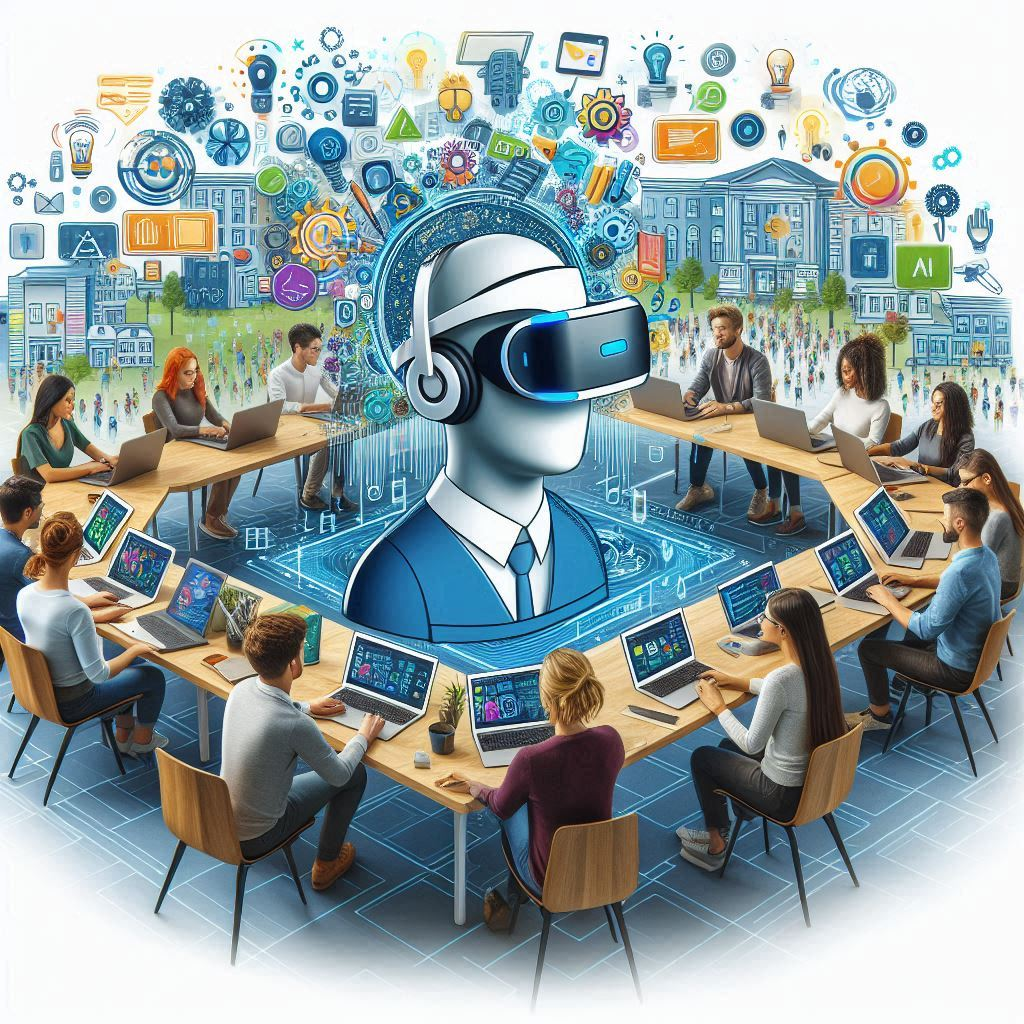Is AI-Generated Content the Future of E-Learning Platforms
Image created with Microsoft Copilot
E-learning is changing fast. AI-generated content takes center stage, reshaping how we learn online. This shift isn't just about flashy tech; it's about making education more engaging and accessible for everyone.
Think about your last corporate training session. Did it capture your attention? With tools like Keytake leading the way, you'll find that interactive material can transform dull lessons into dynamic experiences.
Stick around as we explore what this means for you and the future of learning.
Transforming Traditional Content into Interactive Experiences
Engaging e-learning experiences depend on transforming traditional content. Organizations seek innovative ways to captivate learners and improve knowledge retention. AI-generated content stands out as a game changer in this arena.
For instance, corporate learning videos produced with tools like Keytake demonstrate how AI video editing enhances the educational process. These platforms allow companies to create dynamic, personalized training modules that cater to diverse learning styles. The result? Employees stay focused and absorb information better.
As e-learning continues evolving, embracing these advanced tools becomes crucial for any organization aiming for effective employee development. Expect more businesses to integrate such technologies into their training programs moving forward.
Harnessing Individuality in AI-Powered E-Learning
Without a doubt, personalization sits at the heart of successful e-learning experiences. Tailoring content to individual needs enhances engagement and knowledge retention. Here's how AI helps achieve this:
- Tailored Mastery Journeys: Leveraging AI, courses evolve in real-time to match individual pace, fostering personal growth with precision.
- Personalized Resource Suggestions: Platforms discern user engagement patterns and nudge learners towards content that resonates with their unique aptitudes and curiosities.
- Feedback Loops: Immediate assessments provide personalized feedback, guiding learners toward areas needing improvement.
As organizations increasingly adopt these features, they foster a more customized learning experience. Expect personalization to become the standard in future e-learning environments.
Amplifying Involvement through Instant Feedback Loops
Instant feedback is the cornerstone of elevated learner involvement. With rapid reactions to each step taken, learners maintain a high level of motivation and sharp focus. This interaction is especially valuable in online learning platforms in software development, where mastering new skills can feel overwhelming.
AI-driven tools enable instant assessments that adapt based on user performance. For example, if a learner struggles with a specific coding concept, the platform can offer targeted resources or exercises to address those gaps right away.
This immediate support helps maintain momentum and fosters confidence. As AI continues to evolve, expect real-time feedback mechanisms to become an essential component of effective e-learning experiences.
Challenges and Ethical Considerations of AI in Education
While AI-generated content offers significant benefits, it also presents challenges and ethical concerns. Understanding these issues is essential for creating responsible e-learning environments. Key considerations include:
- Information Integrity Concerns: The pursuit of personalized learning through user data collection necessitates scrutiny over the storage and application of such information.
- Ensuring Equity in AI Programming: Vigilance is crucial to prevent the replication of ingrained biases from historical data within AI, which could skew educational equity.
- Balancing Tech Use with Cognitive Development: There's a fine line between utilizing automation for education and impairing learners' ability to cultivate independent critical thinking skills.
Addressing these challenges requires ongoing dialogue within the education community. As AI continues to shape e-learning, maintaining ethical standards will be crucial for fostering trust and integrity in educational practices.
The Future Landscape: Predictions for E-Learning Technologies
The terrain of e-learning is on the cusp of dramatic evolution. Anticipate a world where virtual and augmented realities become standard tools, deepening engagement by placing learners inside highly interactive scenarios to foster comprehension.
Looking ahead, AI-informed adaptive learning environments will take personalization to new heights. Systems adept at parsing user data will deftly customize educational journeys, pinpointing and responding to unique learning profiles.
Moreover, the integration of gamification is expected to surge as educators seek fresh methods to stimulate student interest. Organizations that harness these forward-thinking techniques are set to craft enriched educational landscapes that spark exploration and cement knowledge across diverse learner spectrums.
Embracing Change: The Future of Learning in a Digital World
As the digital tide reshapes the e-learning domain, organizations are compelled to evolve or risk obsolescence. A competitive edge hinges on assimilating emergent technologies --- think AI-curated content, bespoke learning expeditions, and virtual realms.
By adopting such strategies, businesses can kindle deeper engagement and enhance educational results. The education of tomorrow is anchored in malleability and a readiness to adapt, traits indispensable for triumph in an increasingly digital panorama.
